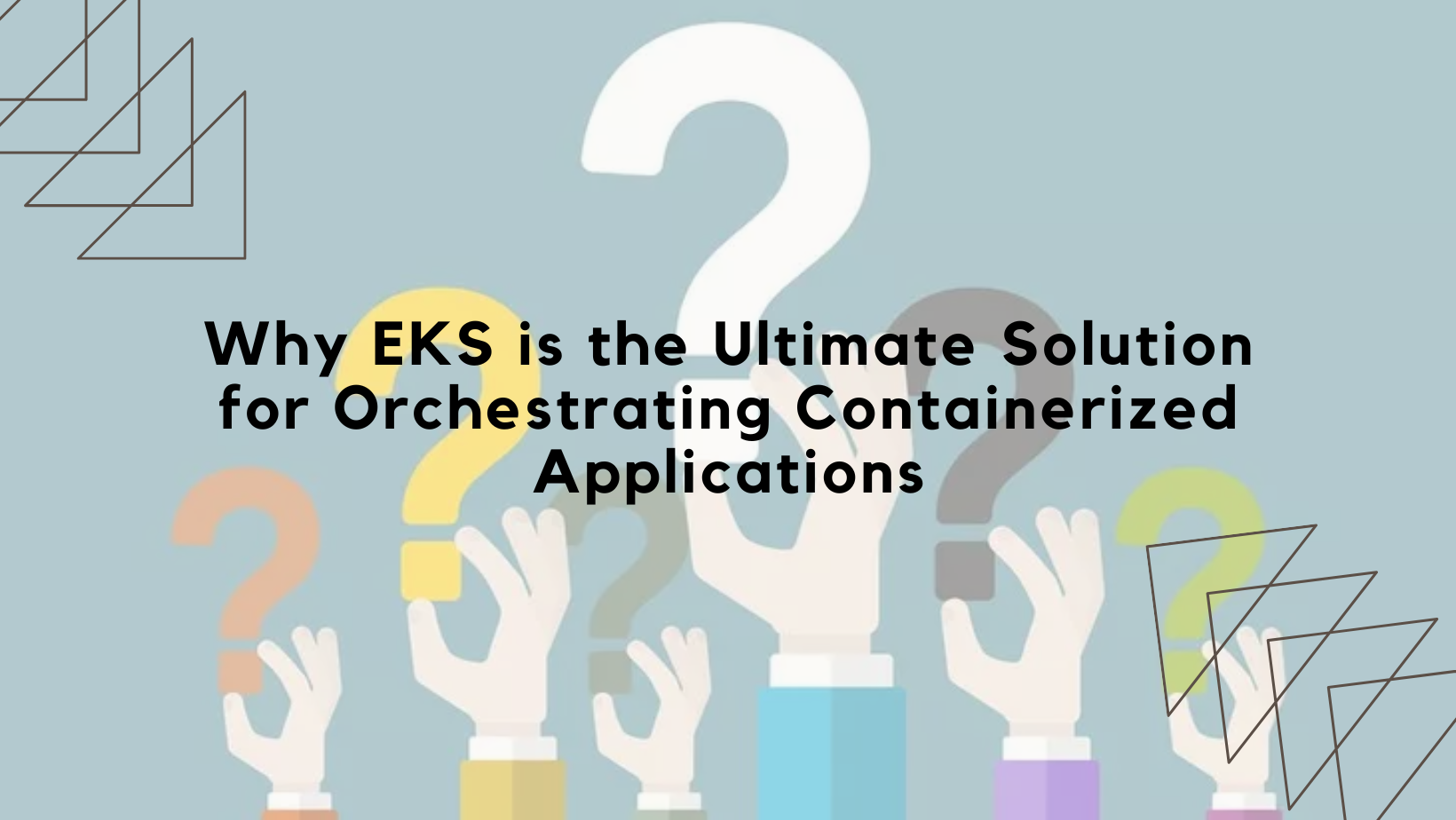Why EKS is the Ultimate Solution for Orchestrating Containerized Applications
Explore how Amazon EKS simplifies container orchestration, providing seamless integration with AWS services, scalability, high availability, robust security, and simplified operations. Elevate your deployment processes with EKS

Simplify your containerized application management with EKS. Seamlessly integrate with AWS, scale effortlessly, and streamline operations.
In today's fast-paced and ever-evolving technology landscape, orchestrating containerized applications has become a critical aspect of modern software development. With the rise of microservices architecture and the need for scalability, efficiency, and automation, developers are turning to container orchestration platforms to streamline their deployment processes. Among the wide array of options available, Amazon Elastic Kubernetes Service (EKS) stands out as the ultimate solution for orchestrating containerized applications.
Seamless Integration with AWS Ecosystem
One of the key advantages of EKS is its seamless integration with the broader AWS ecosystem. As the leading cloud computing provider, Amazon Web Services (AWS) offers a comprehensive suite of services that cater to various aspects of application development and deployment. EKS leverages this ecosystem by integrating with AWS services such as Elastic Load Balancer, Amazon RDS, AWS Identity, Access Management (IAM), and Amazon CloudWatch, to name a few. This integration allows developers to leverage the full power of AWS services, making it easier to build, deploy, and manage containerized applications.
Scalability and Elasticity
Scalability is a crucial requirement for modern applications, especially those built on microservices architecture. EKS excels in this area by providing automatic scaling capabilities. With EKS, developers can easily scale their application workloads up or down based on demand. This is achieved through the use of Kubernetes, a powerful container orchestration tool that EKS is built upon. Kubernetes allows for horizontal scaling, meaning additional pods can be added or removed dynamically, ensuring optimal resource utilization and efficient load distribution. With EKS, developers can confidently handle high-traffic loads and seamlessly scale their applications as needed.
High Availability and Fault Tolerance
When it comes to running mission-critical applications, high availability, and fault tolerance are non-negotiable. EKS offers robust features to ensure that applications remain highly available even in the face of failures. EKS clusters are designed to be multi-Availability Zone (AZ) aware, meaning that application workloads can be distributed across multiple availability zones within a given AWS region. This design provides redundancy and fault tolerance, ensuring that if one AZ fails, the workload seamlessly transitions to another AZ without any downtime. Additionally, EKS automatically manages the health of the worker nodes, replacing any failed instances and maintaining the desired capacity of the cluster. With EKS, developers can have peace of mind knowing that their applications are resilient and highly available.
Security and Compliance
Containerized applications introduce new security challenges, and EKS addresses these concerns by providing a secure and compliant environment. EKS integrates with AWS IAM, allowing granular control over user access to the EKS cluster and its associated resources. Additionally, EKS takes care of securing the Kubernetes control plane by managing the underlying infrastructure and applying security best practices. EKS also supports encryption at rest and in transit, ensuring that data is protected both in storage and during communication. For organizations with specific compliance requirements, EKS is certified with various industry standards, such as HIPAA, PCI DSS, and ISO 27001. With EKS, developers can focus on building their applications while relying on a secure and compliant infrastructure.
Simplified Operations and Management
EKS simplifies the operations and management of containerized applications, allowing developers to focus on writing code rather than dealing with the intricacies of infrastructure management. EKS takes care of the underlying Kubernetes control plane, including updates, patches, and scaling, thus reducing the operational overhead. It provides a managed service that abstracts away the complexities of cluster management, making it easier to deploy and manage applications at scale. EKS also integrates with popular developer tools and services, such as AWS CodePipeline and AWS CodeBuild, enabling seamless CI/CD workflows. With EKS, developers can accelerate their development cycles and increase productivity.
Conclusion
In conclusion, EKS offers a comprehensive and feature-rich solution for orchestrating containerized applications. With its seamless integration with the AWS ecosystem, scalability, high availability, security, and simplified operations, EKS empowers developers to build and deploy applications with confidence. Whether you are a startup looking to scale rapidly or an enterprise with complex application requirements, EKS provides the ultimate solution for orchestrating containerized applications in a secure, scalable, and efficient manner.
Supercharge your deployment process with Amazon EKS, read my other blog on Scaling with Ease: How EKS Enables Seamless Management of Kubernetes Clusters
Hi! I am Safoor Safdar a Senior SRE. Read More. Don't hesitate to reach out! You can find me on Linkedin, or simply drop me an email at me@safoorsafdar.com
